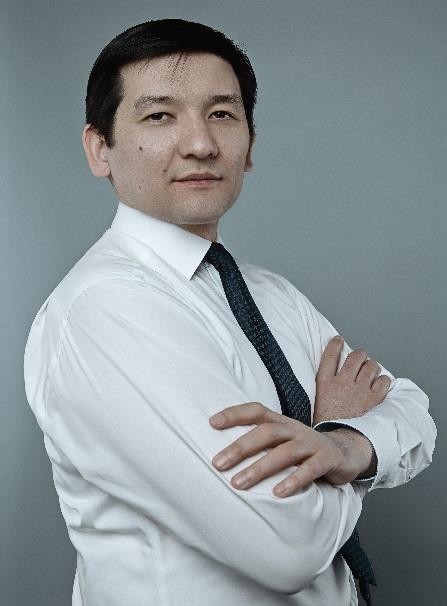February 16, 2022
Judicial system of Kazakhstan
- The concept of the judicial system of the Republic of Kazakhstan
- Judicial power of the Republic of Kazakhstan
- Judicial system of Kazakhstan
- District and equivalent courts
- Regional and equivalent courts
- Supreme Court of the Republic of Kazakhstan
- Specialized courts in the judicial system of the Republic of Kazakhstan
- Conclusion
1. The concept of the judicial system of the Republic of Kazakhstan.
In Kazakhstan, state power is divided into legislative, executive and judicial branches.
The judicial system of Kazakhstan is an independent and independent (independent) state branch of power. It is designed to protect the rights, laws and interests of citizens and organizations.
The judicial system of the Republic of Kazakhstan consists of the Supreme Court of the Republic of Kazakhstan, local and other courts established in accordance with the Constitution of the Republic of Kazakhstan and constitutional laws. The highest judicial body is the Supreme Court.
2. Judicial power of the Republic of Kazakhstan.
The judiciary in the Republic of Kazakhstan is one of the branches of state power and is aimed at resolving various conflicts arising in society on the basis of the Constitution, laws and other regulatory legal acts. Judicial power is exercised through civil, criminal and other forms of legal proceedings established by law.
The main task of the judiciary is to resolve conflicts and disputes that arise in public and state life, restore violated rights, and punish those who violated the rule of law and violated the law. Justice in the Republic of Kazakhstan is carried out only by the court. No other bodies and persons have the right to appropriate the powers of a judge or the functions of the judiciary.
3. The judicial system of Kazakhstan:
The judicial system of the Republic of Kazakhstan consists of the Supreme Court of the Republic of Kazakhstan, local and other courts established in accordance with the Constitution of the Republic of Kazakhstan and this Constitutional Law.
– Courts of the first instance – city, specialized courts, the military court of the garrison and district courts.
– Courts of II instance – the city court of the capital, the city court of the city of republican significance, the Military Court of the Troops of the Republic of Kazakhstan and regional courts. They are also called appeals.
The Supreme Court is the highest judicial body.
The local courts are:
1) regional and equivalent courts (city court of the capital of the Republic, city courts of cities of republican significance);
2) district and equivalent courts (city court, interdistrict court).
Other courts may be created in the Republic of Kazakhstan, including specialized courts (military, financial, economic, administrative, juvenile and others).
4. District and equivalent courts.
District and equivalent courts (hereinafter – district courts) are formed, reorganized, renamed and abolished by the President of the Republic of Kazakhstan on the proposal of the Chairman of the Supreme Court, agreed with the Supreme Judicial Council. The President of the Republic of Kazakhstan may form one district court in several administrative-territorial units or several district courts in one administrative-territorial unit. The district court is the court of first instance and considers all court cases and materials related to its jurisdiction, and exercises other powers provided by law.
5. Regional and equivalent courts.
Regional and equivalent courts consider: appeals and protests against decisions made by district and equivalent courts, cassation complaints or protests against the decision and ruling of the court of appeal.
Regional Court:
1) consider court cases and materials related to its jurisdiction;
2) studies judicial practice and, based on the results of its generalization, considers issues of compliance with the law in the administration of justice by the regional courts;
3) exercise control over the activities of the territorial divisions of the authorized body in the regions, cities of Nur-Sultan and Almaty;
4) exercise other powers provided by law.
6. Supreme Court of the Republic of Kazakhstan
The Supreme Court is the highest judicial body in civil, criminal and other cases under the jurisdiction of local and other courts, supervises their activities in the procedural forms provided for by law and provides clarifications on issues of judicial practice.
1) consider court cases and materials related to its jurisdiction;
2) studies judicial practice and, based on the results of its generalization, considers issues of compliance with the law in the administration of justice by the courts of the Republic;
3) adopts normative resolutions, gives clarifications on issues of judicial practice;
3-1) forms a personnel reserve for the positions of chairmen and chairmen of the judicial collegiums of local and other courts, judges and chairmen of the judicial collegiums of the Supreme Court (hereinafter referred to as the personnel reserve);
3-2) sends to the Supreme Judicial Council a list of persons enrolled in the personnel reserve;
4) exercise other powers provided by law.
7. Specialized courts in the judicial system of the Republic of Kazakhstan.
Also in Kazakhstan there are other specialized courts: military, economic, administrative, juvenile, administrative offenses. Specialized courts are formed by the President of the Republic of Kazakhstan with the status of a regional or district court.
The main function of the court is to protect the rights, freedoms and legitimate interests of citizens and organizations, judicial protection against any illegal decisions and actions and actions of state bodies, organizations and officials that infringe on the rights and legitimate interests.
Specialized inter-district economic courts
Inter-district economic courts are called upon to exercise judicial power in resolving civil cases on property and non-property disputes. The parties to the process are citizens who are engaged in entrepreneurial activities, without forming a legal entity, legal entities, as well as in corporate disputes. The jurisdiction of economic inter-district courts includes only those cases that are excluded from the jurisdiction of courts of general jurisdiction.
Specialized inter-district administrative courts
Specialized inter-district administrative courts were created due to the need to ensure the legality and guarantees of the rights and legitimate interests of citizens involved in the sphere of legal relations with bodies and officials of the executive branch of state power.
Specialized inter-district courts for administrative offenses
The competence of the court includes the consideration of certain elements of administrative offenses and the resolution of cases on challenging the decisions of bodies (officials) authorized to consider cases of administrative offenses.
Military courts
Features of the organization and activities of these courts are due to the specifics of the organization and structure of the Armed Forces of the state and the tasks they face. The jurisdiction of the military courts includes the consideration of cases as a court of first instance and appellate instance, as well as in the order of judicial supervision and in view of newly discovered circumstances.
Specialized inter-district juvenile courts
Specialized juvenile courts are an important part of the juvenile justice system, since the judicial power extends to all cases and disputes arising on the basis of the Constitution and laws.
Juvenile courts were established as courts of complex jurisdiction, whose jurisdiction includes criminal cases on crimes committed by minors and criminal cases on crimes that violate the rights of minors, as well as civil and administrative cases.
Specialized inter-district criminal courts
Specialized inter-district criminal courts act as a court of first instance. The jurisdiction of this court includes cases of especially grave crimes, as well as cases, the consideration of which is carried out with the participation of jurors.
Conclusion
Judicial power is exercised on behalf of the Republic of Kazakhstan and has as its purpose the protection of the rights, freedoms and legitimate interests of citizens and organizations, ensuring the implementation of the Constitution, laws, other regulatory legal acts, international treaties of the Republic.
Everyone is guaranteed judicial protection from any unlawful decisions and actions of state bodies, organizations, officials and other persons that infringe or restrict the rights, freedoms and legitimate interests provided for by the Constitution and laws of the Republic.
Resources:



